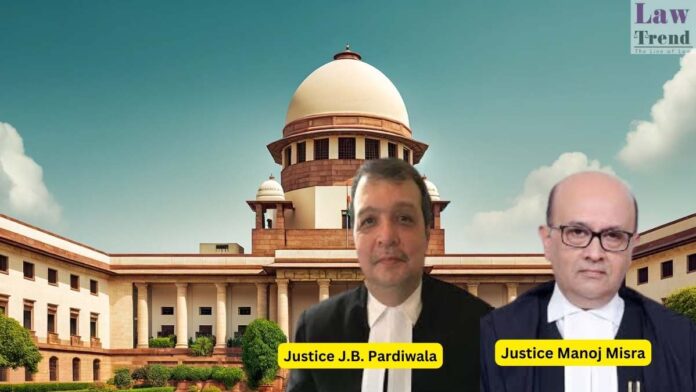The Supreme Court has ruled that Section 216 of the Code of Criminal Procedure (CrPC) does not empower courts to delete charges already framed, holding that the provision can only be used to add or alter charges. The ruling came in the judgment delivered by Justice J.B. Pardiwala and Justice Manoj Misra in Directorate of
To Read More Please Subscribe to VIP Membership for Unlimited Access to All the Articles, Download Available Copies of Judgments/Order, Acess to Central/State Bare Acts, Advertisement Free Content, Access to More than 4000 Legal Drafts( Readymade Editable Formats of Suits, Petitions, Writs, Legal Notices, Divorce Petitions, 138 Notices, Bail Applications etc.) in Hindi and English.




